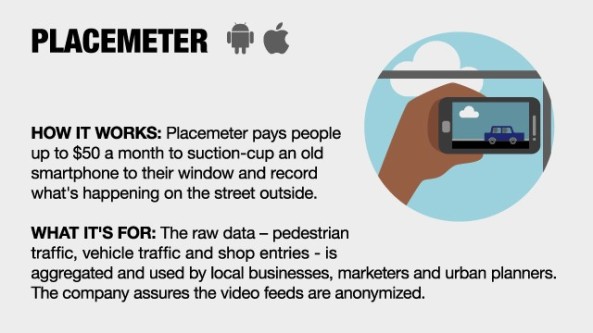Crowdsourcing apps are
changing everything from
the way we travel, to the
way we work, to the way we
gather information
The earliest example of
crowdsourcing was the
Oxford English Dictionary
which relied on volunteers
in the 19th century
Crowdsourcing has been
popular in Europe and the
US for almost a decade
In Asia, where personal
relations in business are
more important, the
phenomenon has been
slower to take off.
From avoiding traffic jams, to analyzing pedestrian flow patterns, to
finding the best public toilet in town, crowdsourcing apps are showing that
many smartphones make for light work.
With thousands of mini-reports coming in from around the internet, a
mosaic of information can form a larger picture that can be used for many
different purposes, from meteorology to car-sharing.
Using the intelligence of a vast interconnected organism, however, is
nothing new: the venerable Oxford English Dictionary may in fact be the
earliest example of crowdsourcing.
In the mid-19th century it made an open call for volunteers to log words
and provide examples of their usage. Over a 70-year period, it received more
than six million submissions.
Today, crowdsourcing is used in investing, in creative work and in funding
start up projects.
As with all good ideas, gaining a critical mass is a crucial
element to its success. Even runaway hits such as BlaBlaCar —
the AirBnb of car travel — initially struggled to gain a significant
number of users.
But such incidents as a French transport strike in 2007 —
BlaBlaCar gained precious media coverage for being very much in
business during the shutdown — and the Icelandic volcano that
grounded aircraft in 2010 played well for the company.
The wide availability of smartphones now makes it easier than
ever to devote them to data gathering, with or without actual
human intervention.
The Rainforest Connection transforms recycled cellphones into
solar-powered surveillance devices that can detect illegal
logging: placed high up in the forest canopy, they listen out for
the sounds made by chainsaws and trigger immediate
intervention by authorities.
In New York, a start up called Placemeter encourages citizens to
suction-cup an old Android phone or an iPhone to a window, to
send over a video feed of the street below. Placemeter uses the
data – which they assure is completely anonymous and is never
stored — to infer pedestrian traffic patterns. This helps
businesses market better and consumers can be made aware of waiting lines
at shops or museum before even getting there.
Participants receive up to $50 per month, depending on the quality of the
view from their window.
Crowdsourcing apps have been quick to gather pace in the U.S. and Europe
— where dealing in a marketplace with strangers is commonplace — but
slower in Asia where connections are still important.
While some strong start ups are doing well in the region — freelancer
platforms such as Coconala and Lancer in Japan and Zhubajie in China —
crowdsourcing is still in its infancy.
“The challenge for crowdsourcing in Asia is that people tend to
be more risk averse,”
says Ping Wong of the Hong Kong Internet
Society. “They want to work with people they know or get a
referral from friends.
“This cultural difference may take time to iron out before
crowdsourcing can really take off in Asia.”
In the meantime, European users can’t get enough of apps such
as Blablacar which are changing the public transport landscape.
With a carefully designed service that calibrates the petrol
money for spare seats in private cars, the app’s owners say they are seeing
it grow as a social phenomenon.
BlaBlaCar’s Alec Dent told British media the company has even noticed
spikes in searches for rides to Manchester before United home games.
“We thought it would be interesting to test the old joke that a lot of
Manchester United fans live in Surrey,”
he was quoted as saying.
“And sure enough, there is a pattern of rides to and from Old Trafford
around match days from the London area, especially Surrey.”
Read more from Tomorrow Transformed:
Can the web predict the future?
The Universal Translator from science fiction is coming
Finally, a flying car for everybody?
